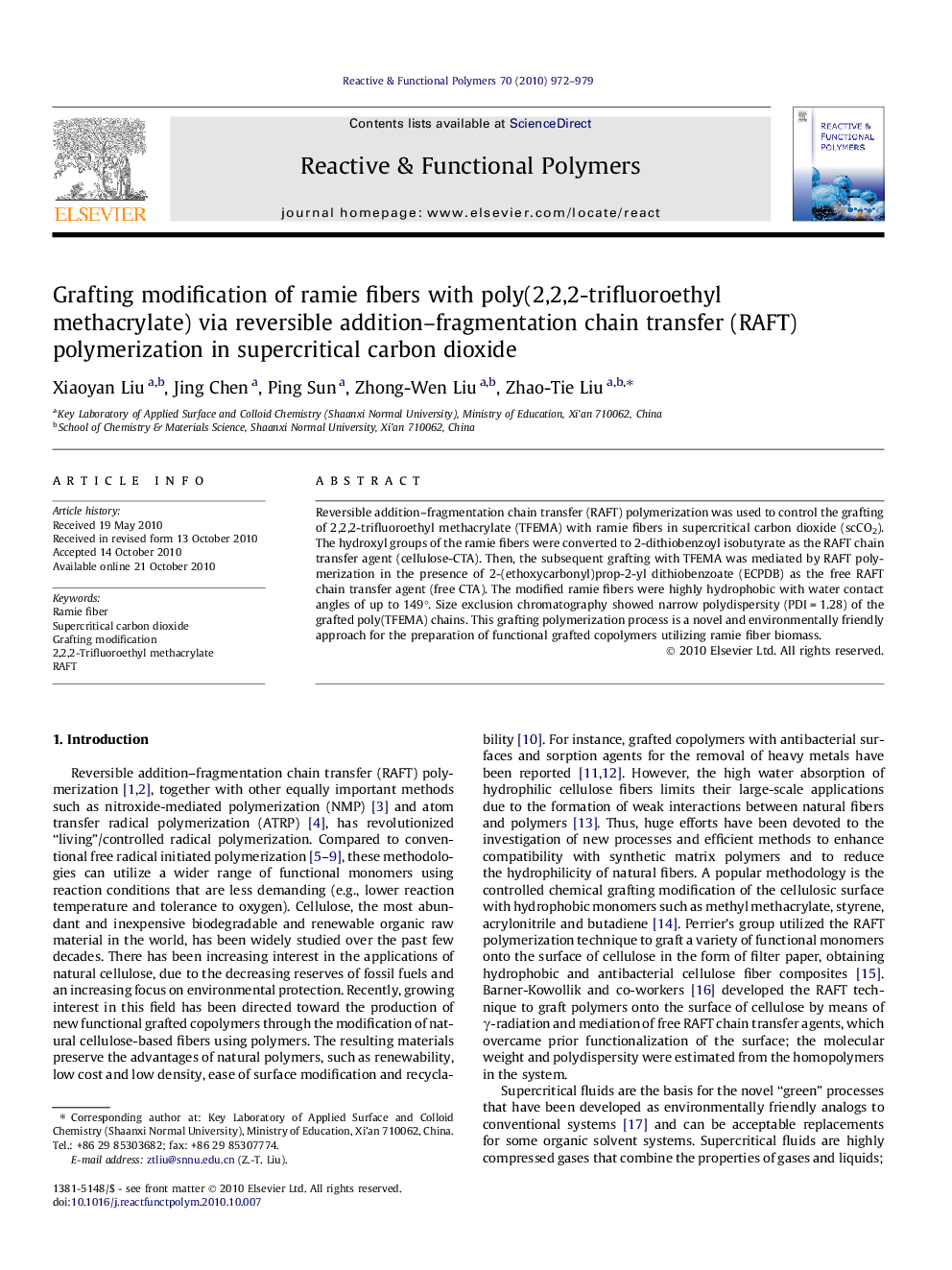| Article ID | Journal | Published Year | Pages | File Type |
|---|---|---|---|---|
| 5210608 | Reactive and Functional Polymers | 2010 | 8 Pages |
Abstract
Reversible addition-fragmentation chain transfer (RAFT) polymerization was used to control the grafting of 2,2,2-trifluoroethyl methacrylate (TFEMA) with ramie fibers in supercritical carbon dioxide (scCO2). The hydroxyl groups of the ramie fibers were converted to 2-dithiobenzoyl isobutyrate as the RAFT chain transfer agent (cellulose-CTA). Then, the subsequent grafting with TFEMA was mediated by RAFT polymerization in the presence of 2-(ethoxycarbonyl)prop-2-yl dithiobenzoate (ECPDB) as the free RAFT chain transfer agent (free CTA). The modified ramie fibers were highly hydrophobic with water contact angles of up to 149°. Size exclusion chromatography showed narrow polydispersity (PDI = 1.28) of the grafted poly(TFEMA) chains. This grafting polymerization process is a novel and environmentally friendly approach for the preparation of functional grafted copolymers utilizing ramie fiber biomass.
Keywords
Related Topics
Physical Sciences and Engineering
Chemistry
Organic Chemistry
Authors
Xiaoyan Liu, Jing Chen, Ping Sun, Zhong-Wen Liu, Zhao-Tie Liu,
